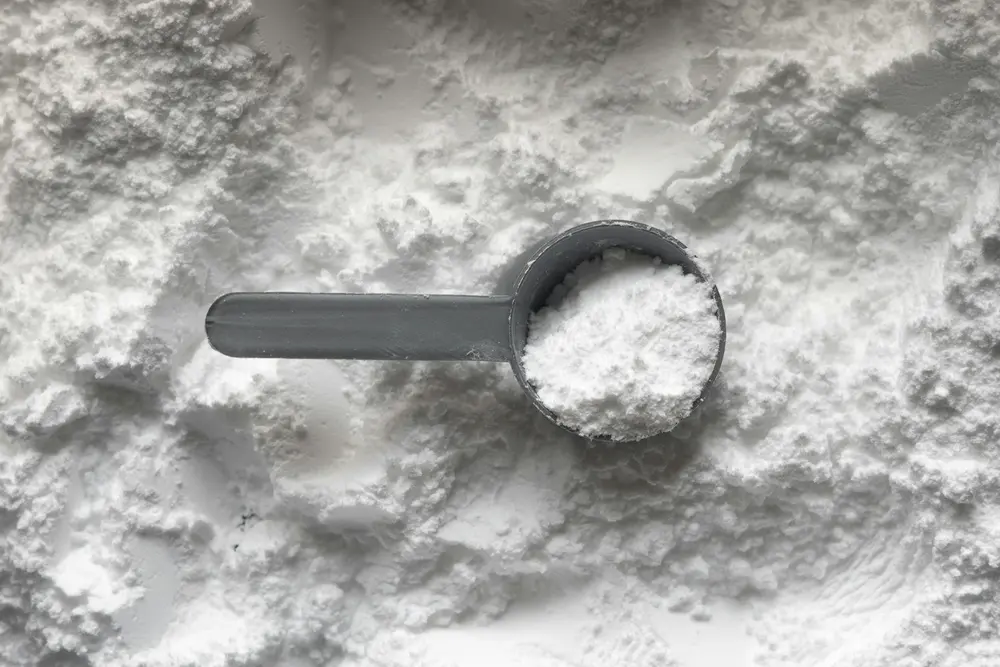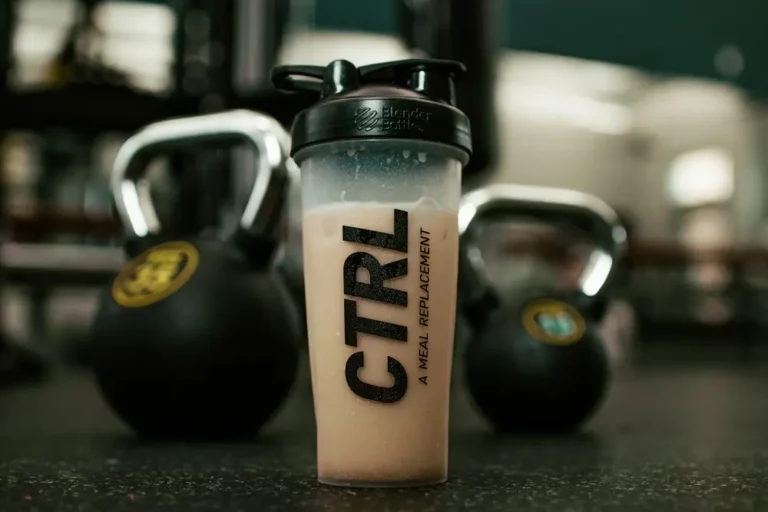Does Creatine Stunt Growth? Unpacking Myths vs. Facts
I’ve heard the question so many times it’s almost like a broken record: “Does creatine stunt your growth?” It’s a concern that seems to linger in gyms, locker rooms, and even casual conversations about fitness. Let’s dive into this topic and finally put some of these myths to rest.
First off, it’s crucial to understand what creatine actually is. It’s not a drug or some magical potion; it’s a naturally occurring amino acid that plays a significant role in muscle growth and strength. But with all the misinformation out there, it’s easy to see why some might be hesitant. So, let’s get to the bottom of this and explore what the science really says about creatine and growth.
Creatine Usage and Growth Concerns
In exploring the depths of fitness supplements, one question that often pops up in discussions is whether creatine, one of the most consumed supplements, could potentially stunt growth. While it’s essential to scrutinize what we put into our bodies, especially during the crucial years of growth and development, I’ll dive into this topic to unravel the truth behind such concerns.
Common Misconceptions About Creatine Stunting Growth
Firstly, it’s vital to address some widespread misconceptions surrounding creatine and its impact on growth. Many believe that since creatine is often associated with intense muscle building and strength training, it could somehow negatively affect one’s natural growth patterns, especially in adolescents. This idea likely stems from a misunderstanding of how creatine works in the body and its role in muscle development and recovery.
Creatine is naturally produced by our bodies and stored in the muscles, where it’s used for energy during high-intensity activities. Supplementing with creatine can increase these energy reserves, improving performance and muscle growth through better workout efficiency. However, there’s no scientific evidence to suggest that creatine directly interferes with the natural growth of bones or the human body’s overall development.
Analysis of Research on Creatine and Growth Hormone Levels
Diving deeper into the scientific aspect, several studies have explored how creatine supplementation affects growth hormone levels, a crucial factor in the body’s development. One might hypothesize that if creatine alters growth hormone levels significantly, it could potentially impact growth.
However, current research indicates that creatine supplementation doesn’t adversely affect growth hormone levels in a way that would stunt growth. For instance, a study by McMorris T, Harris RC, Swain J, et al. examined the effect of creatine supplementation and found no detrimental impact on growth hormone levels following exercise. Instead, evidence suggests that any changes in growth hormone levels due to creatine are within the natural variance that occurs with intense physical activity.
Moreover, the concerns often don’t take into account the body’s remarkable ability to regulate hormone levels, ensuring that short-term fluctuations don’t have long-lasting effects on development. In essence, while creatine can affect energy levels in muscles and might influence workout performance and recovery, there’s no solid backing to the claim that it directly stunts growth by manipulating growth hormone levels or any other means.
Creatine’s Impact on Adolescents
When it comes to understanding how creatine affects adolescents, I’ve noticed a lot of curiosity and concern among parents and young athletes alike. Given its popularity for boosting performance, it’s crucial to delve into its implications for this younger demographic.
Popularity of Creatine Among Teenage Athletes
I can’t ignore the growing trend of creatine use among teenage athletes. This surge in popularity isn’t surprising when you consider the promises of increased strength and enhanced muscle recovery. After all, who wouldn’t want an edge in their performance? From weightlifters to sprinters, the appeal spans a broad spectrum of sports, primarily because these athletes often seek rapid improvements in short bursts of high-intensity activities. However, amidst this popularity, it’s essential to ponder whether the immediate performance enhancements outweigh the potential long-term health risks, especially in bodies that are still developing.
Guidelines and Safety Measures for Adolescent Creatine Use
Given the widespread use of creatine among young athletes, understanding the guidelines and safety measures is paramount. It’s clear that moderation is key. The recommended dosage stipulates about 0.1 grams per kilogram of body weight, aiming to prevent common side effects such as bloating and indigestion. Furthermore, dehydration is a significant concern, highlighting the importance of ample water intake to mitigate risks. Hydration can’t be overstressed, as creatine demands an increase in water consumption to support cellular hydration effectively.
I always stress the necessity of a balanced diet, rich in natural sources of creatine like meats and fish, alongside supplementation. This approach ensures not only the achievement of desired athletic performance but also the maintenance of overall health. Additionally, engaging in consistent workout activities is crucial to optimize the benefits of creatine without inadvertently gaining body fat.
Benefits of Creatine Supplementation
Muscle Mass and Strength Enhancement
While the debate about creatine and growth seems never-ending, I can’t help but appreciate the clearer benefits of this supplement. For starters, creatine is renowned for its role in enhancing muscle mass and strength. This isn’t just gym lore; it’s backed by a multitude of studies. When I add creatine to my training regimen, I’m essentially equipping my muscles with a bit more fuel in the form of ATP (adenosine triphosphate), helping me pump out that extra rep or lift slightly heavier weights. The process might sound complex, but the outcome is straightforward: enhanced performance leads to an increase in muscle mass over time.
What’s interesting is the way creatine achieves this. By drawing more water into muscle cells, it creates an optimal environment for muscle growth, making my workouts feel more productive. I’ve seen the difference it can make firsthand, not just in my strength gains but also in how swiftly my muscles recover between sessions. It feels like hitting a reset button, where each workout starts with muscles that are ready to go rather than still fatigued from the last session.
Support for Cognitive and Physical Development
Moving beyond muscles, creatine has shown promise in areas I didn’t expect, such as cognitive function and overall physical development. Remember the McMorris et al. study? It demonstrated that creatine supplementation, even under conditions like sleep deprivation and mild exercise, could improve cognitive and psychomotor performance, mood state, and even manage concentrations of catecholamines and cortisol, which are stress markers. For adolescents whose bodies and brains are still developing, these benefits suggest that creatine might play a supportive role, beyond just physique enhancement.
While boosting physical prowess is often the focus, the potential for creatine to aid in cognitive function is exciting. It’s not just about lifting weights or sprinting faster but also about maintaining focus and potentially enhancing learning and memory capabilities. This dual approach to development — both physical and cognitive — reinforces why creatine is more than just a muscle-building supplement. It offers a comprehensive suite of benefits that can help support overall well-being, from a stronger body to a sharper mind.
Creatine’s Role in Nutritional Health
When it comes to the discussion around creatine and its influence on growth, a common area of interest is whether it contributes to achieving greater heights. The theory behind this lies in creatine’s ability to enhance protein synthesis and support the overall cellular functions of the body. Since proteins play a critical role in the development and repair of body tissues, an optimally functioning protein synthesis mechanism can theoretically support better growth outcomes.
Moreover, considering creatine’s role in increasing water retention within muscles, it’s plausible to speculate that this enhanced state of hydration could indirectly support the body’s growth processes. However, it’s crucial to highlight that direct scientific evidence linking creatine intake to taller heights in humans is still limited. Most discussions around this topic are based on deducing potential outcomes from creatine’s known benefits on muscle mass and cellular energy production.
Turning our attention towards creatine’s potential in combating nutritional deficiencies, it’s noteworthy that creatine isn’t just about building muscle or enhancing athletic performance. It could play a significant role in the broader spectrum of nutritional health, particularly in scenarios where deficiencies or malnutrition occur.
Creatine supplementation might serve as an additional nutritional intervention for individuals struggling with specific dietary gaps, especially in cases where these deficiencies affect muscular and neurological health. For example, populations that have limited access to creatine-rich foods (like vegetarians or vegans) might find supplementation beneficial not just for physical performance but also as a means to support overall physiological health.
Safe Creatine Usage
When we’re talking about whether creatine stunts growth or not, it’s crucial to pivot toward how we can safely incorporate creatine into our routines without worrying about negative impacts, especially on growth. As I’ve navigated through the world of supplements, I’ve learned that understanding the proper usage is key. So, let’s dive into the specifics of safely using creatine, focusing on recommended dosages and the importance of consulting healthcare professionals.
Recommended Dosage and Administration
Determining the right amount of creatine to use can feel a bit like navigating a maze. Despite the variety of opinions and studies out there, I’ve found a guideline that seems to be widely accepted and supported by research. The general consensus is to start with a loading phase, followed by a maintenance phase.
- Loading Phase: This phase involves taking approximately 20 grams of creatine daily, divided into four 5-gram servings, for 5–7 days. This is said to rapidly increase the muscle stores of creatine.
- Maintenance Phase: After the loading phase, reducing the intake to about 3–5 grams daily helps maintain the elevated creatine levels.
It’s also worth mentioning that some experts suggest skipping the loading phase entirely and starting directly with the maintenance dose. The idea here is to avoid any potential for side effects, such as bloating, while still gradually increasing muscle creatine stores. Regardless of the approach, it’s crucial to stay hydrated and to ideally consume creatine with a meal or snack containing carbohydrates and protein to help with its absorption.
Monitoring and Consulting Healthcare Professionals
No matter how much I read or hear about the benefits of creatine, I always circle back to one unwavering piece of advice: consult a healthcare professional before starting any new supplement, including creatine. This is especially true if you’re under 18, pregnant, nursing, or have existing health conditions.
Monitoring your body’s reaction to creatine is equally important. Pay attention to how you feel during both the loading and maintenance phases. If you experience any adverse effects, it’s important to reconsider your dosage or the supplement’s place in your regimen. Regular check-ups can help ensure that your creatine usage is not negatively impacting your kidneys or overall health, a concern often raised when discussing creatine supplementation.
I’ve also learned the importance of purchasing creatine, and any supplement, from reputable sources. Quality matters, and ensuring what you’re consuming is pure and free from harmful additives is crucial. This simple step can significantly reduce the risk of unwanted side effects.
Understanding the recommended dosages and administration coupled with regular monitoring and professional consultation lays a strong foundation for safe creatine usage. This approach not only mitigates potential risks but also ensures that we’re using creatine in a way that supports our health and fitness goals.
Understanding Creatine Supplementation
When I first started exploring the world of supplements, creatine was a term that frequently popped up. It’s hailed as a miracle for muscle growth but shrouded in myths about its potential side effects, like stunting growth in teenagers. Let’s dive into how creatine works and its role in enhancing athletic performance.
How Creatine Works and Its Natural Sources
Creatine is a substance that’s found naturally in muscle cells. It helps your muscles produce energy during heavy lifting or high-intensity exercise. But how does it do that? Well, creatine increases the production of adenosine triphosphate (ATP), which is often referred to as the body’s energy currency. When you have more ATP, your body can perform better during exercise.
So, where does creatine come from? Besides being produced by the liver, pancreas, and kidneys, it’s also found in foods like red meat and fish. However, the amount of creatine you’d get from your diet alone is less than what you can get from supplements. That’s why many opt for creatine powders or pills to boost their intake.
Creatine’s Effects on Muscle Energy and Athletic Performance
The link between creatine and athletic performance is well-documented in research. Creatine supplementation has been shown to enhance strength, increase lean muscle mass, and help muscles recover more quickly during exercise. This effect is particularly noticeable in short, high-intensity activities like sprinting or weight lifting.
It’s fascinating to learn that it isn’t just about muscle size. Creatine has a pivotal role in improving overall athletic performance. It allows athletes to push harder for longer periods, facilitating both endurance and explosive power. We’re not just talking about professional athletes; even casual gym-goers can reap these benefits.
Indeed, the advantages of creatine extend beyond just physical performance. There’s compelling evidence suggesting it can aid in better recovery following intense exercise, reducing muscle damage and inflammation. This ability to bounce back quicker means that you can train more frequently, potentially leading to greater progress over time.
Conclusion
After diving deep into how creatine functions and its myriad benefits for muscle energy and recovery, it’s clear that it’s a powerhouse supplement for those looking to enhance their athletic performance. What’s equally important to note is that there’s no concrete evidence suggesting that creatine stunts growth. So if you’re contemplating adding creatine to your fitness regimen rest assured that it’s not just about getting an immediate boost in your workouts—it’s also about investing in your long-term athletic journey without compromising your growth. Remember, moderation is key, and it’s always wise to consult with a healthcare professional to tailor the right dosage for your individual needs. Here’s to pushing boundaries and reaching new heights in your fitness goals!
Frequently Asked Questions
Is creatine bad for testosterone?
Creatine supplementation has been found to improve exercise performance, with most studies indicating it does not affect testosterone levels. To support testosterone, focus on adequate sleep, regular exercise, and proper intake of essential nutrients like vitamin D, magnesium, and zinc.
Is creatine a steroid?
No, creatine is not a steroid. It’s important to consult a healthcare provider before taking any supplements, including creatine. However, many athletes use creatine safely as part of their training regimen.
Does creatine affect sleep?
Creatine supplementation may lead to shallower sleep by reducing the build-up of certain chemicals in the brain, including adenosine, during wakefulness. It also appears to mitigate cognitive and physical performance deficits following sleep deprivation.







